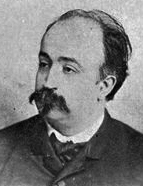

As for the cooperatives, he explains they can be for trade, for credit, and for production. As well as sharing the profits, they can all be considered as educational for industrialists, a sector that requires better training, more rigorous accounting and better moral instruction. His prudence and gradualism do not disguise the radicalism of his proposal, corresponding to a reworking of the figure of the businessman, who will be replaced by workers’ self-management. “Sharing in the profits and consumer and credit cooperatives are useful not only in themselves, but also as the economic and moral basis of the productive cooperatives, in which the workers associate to produce and sell in common, replacing the businessman with a manager elected by themselves, receiving only the average salary and sharing out the profits at the end of the year” (Idem, pp. 134–35). His attempt at historical periodization therefore takes on a markedly instrumental character, becoming a sort of justification for the central choices in his political economy. Reciprocally, as a thinker of a notably “historicist” inclination, Laranjo feels a constant need to support his theory and doctrine with lessons supplied by “life’s instruction”.
Equally worth noting is his constant distancing himself from the orthodoxy of the “monetary veil”, dominant in the nineteenth century, supporting instead the search for a continuous massification of the means of circulation. Through it, and the consequent tendency for a sustained increase in prices, are seen the simultaneous effects of stimulating economic growth and of the democratization of the distribution of wealth, of the raising up of the “greatest number” (Idem, p. 164), particularly through the erosion of rents and rates of interest. If it were not for the historical increase in the means of circulation, if “there had been factors contrary to these, there would have operated, instead of a democratic evolution in societies, an aristocratic evolution; feudalism would not have disappeared, it would have been strengthened; interest rates would not have fallen, they would have risen; production would not have undergone the marvellous development we have today, on the contrary it would have been restricted; and instead of this idea — progress — which is the evident result of history, the opposite and lamentable idea would have been engraved in our intellects and our feelings […]” (O Banco Emissor, 1887, p. 3).
